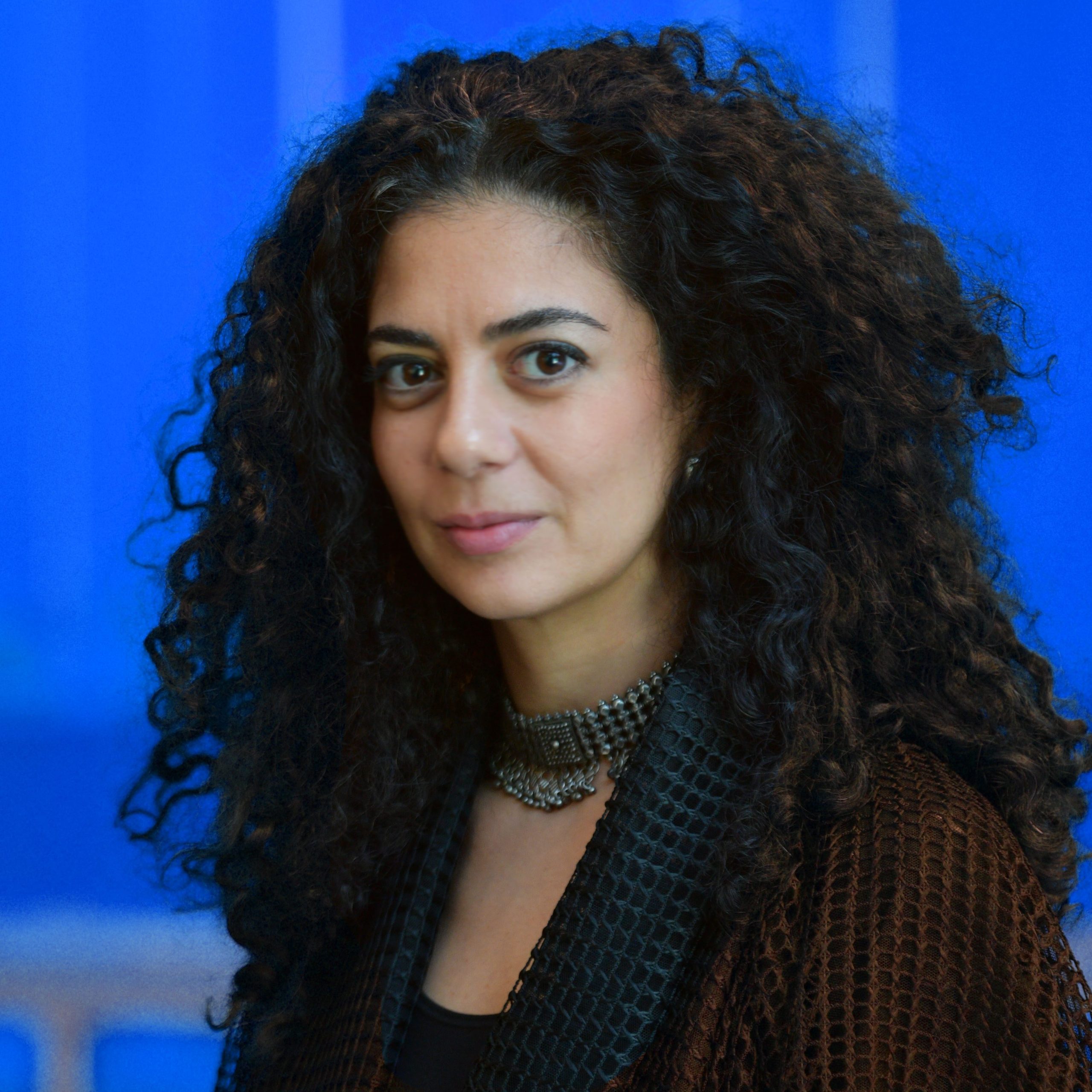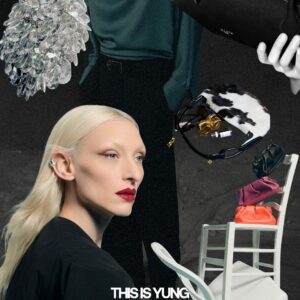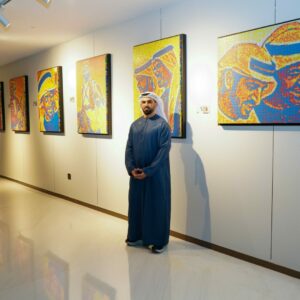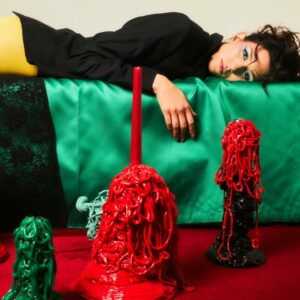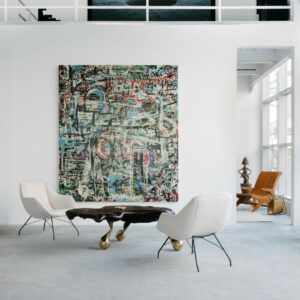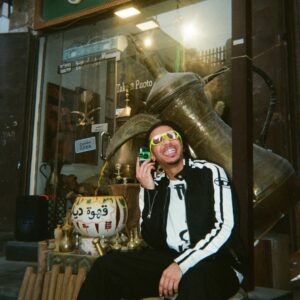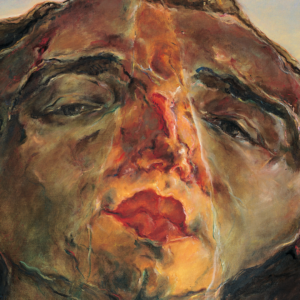Inspired by landscapes, creative Dima Srouji is intuitively designing glass shapes and forms similar to ancient vessels, while showcasing the skills of Palestinian craftsmen.
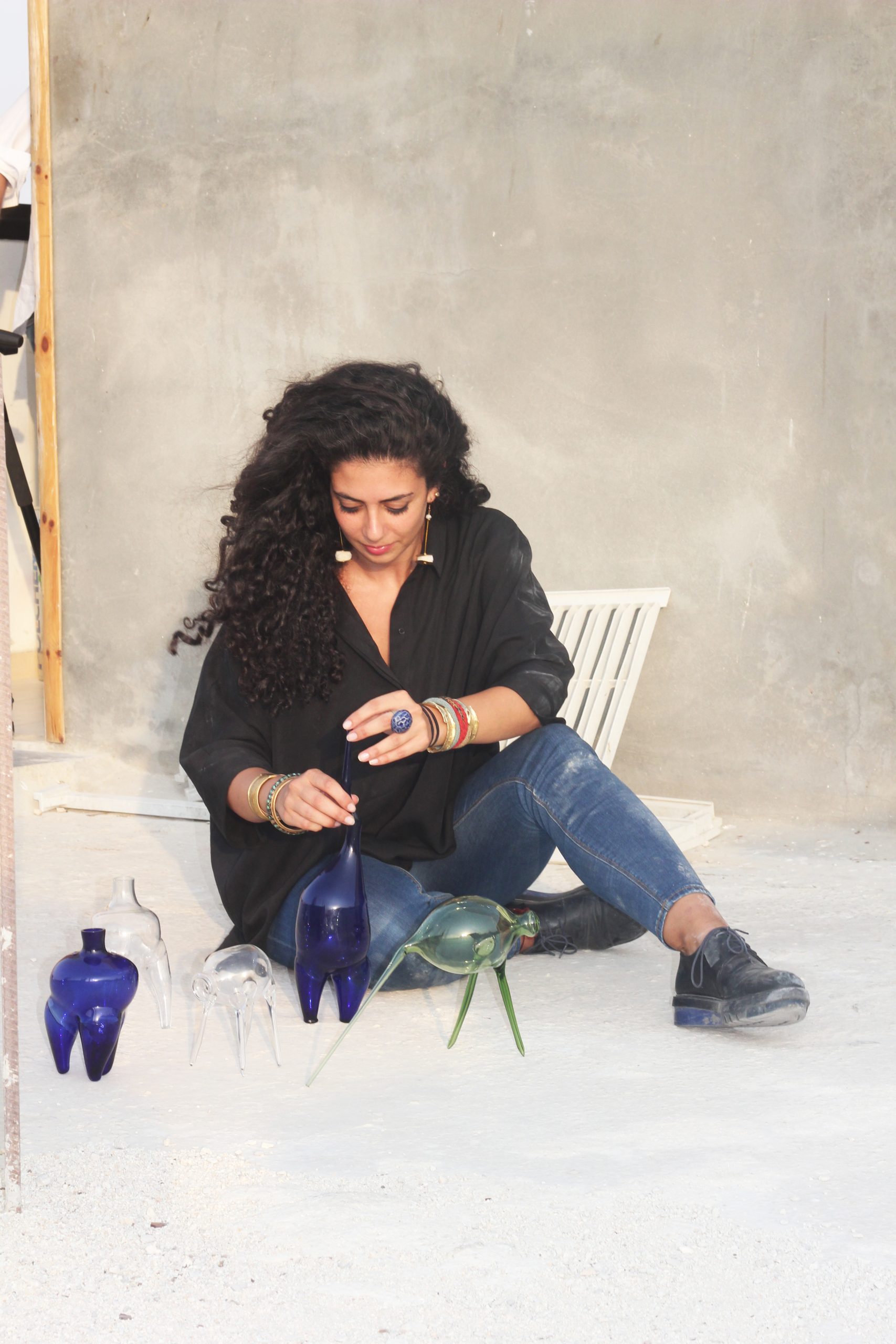
What was the lightbulb idea behind your glassblowing project, Hollow Forms?
There wasn’t really a single lightbulb moment, but it was the moment of my return to Palestine that had a lot of magic. I think with return, a lot can happen. It was a process of meeting the glassblowers (who, to me, looked like alchemists), having an amazing conversation, and starting to make a collection together. It was their first time working with a designer. The ten collections we’ve made over the last five years have been vessels for me to think with and play with; they’ve really been an escape in many ways.
If you were to move from your current home in London and only take three things with you, what would they be and why?
This is an interesting question for me. I’ve moved around so much in my life: I used to hold onto things, to make me feel at home everywhere I moved. I would bring my rugs, my frames, books, et cetera. Now I don’t feel I need to take those things with me anymore, but I would love to keep three of my plants.
Is there a significance behind the organic shapes that you create for Hollow Forms?
A lot of the forms are inspired by early Islamic vessels, but it’s unintentional. The intuitive and abstract design process somehow ends up feeling similar to ancient vessels from the region. I like the idea that the inspiration from the landscape can be abstracted in the production of objects thousands of years apart, yet somehow still contain a similar essence.
What was the best advice that someone gave you?
Dr. Adrian Lahoud [an architect, designer and researcher] recently said something to me that changed my perspective on how I operate in my practice: “Movements are not meant to be clean, they are meant to push us forward.” It relieved a lot of anxiety about where I work, where my red lines are and how I straddle the art world and activism simultaneously, which is not a clean process.
How do you stay positive amidst the world’s chaos?
Deep conviction in the work we’re doing and so much joy that the network is growing. Most importantly, Gen Z kind of just gets it. I feel calm around them. I surround myself with people that I love very deeply, who are part of the same struggle. I think Žižek said something recently about finding happiness, something along the lines of if you are looking for it the object will disappear, but if you are working with people on and through the same struggle, then love and happiness are very present. I think that’s absolutely true.
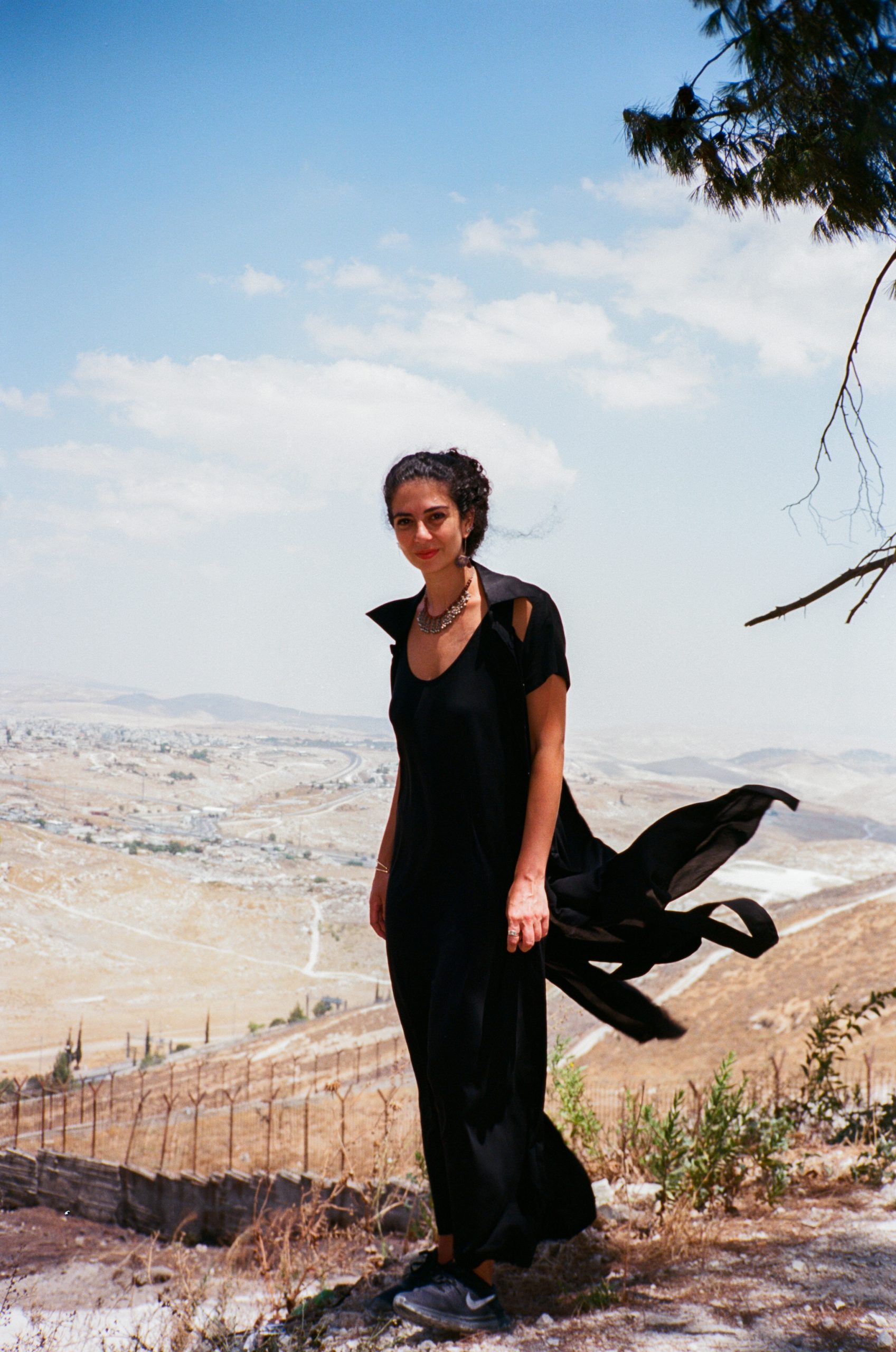
Where’s the next travel destination on your bucket list?
Hard to decide, but I’d like to see more of our region. I’d love to go to Tunis.
While brainstorming, what music are you listening to?
The 98 year old Ethiopian nun and pianist Emahoy Tsegué-Maryam Guèbrou, who lives in Jerusalem.
Follow YUNG’s Art & Culture pages for more interviews like this with Dima Srouji.
